
On September 26, 2024, an episode of the "Yangtze River Analysis" program, which is produced by the Hubei Radio and Television Station News Center, was aired, featuring two Chinese academics from the Central China Normal University, Chen Fei, who is an Associate Professor at the School of Politics and International Relations, and Wang Bin, Deputy Director of the Center for Taiwan and East Asian Studies.
The two academics criticized the United States for its role in global instability, particularly with regard to Iran's nuclear ambitions, and they argued that if Iran were to pursue nuclear weapons, the blame would lie squarely on the United States for creating an environment of insecurity through its sanctions, its withdrawal from the Iran nuclear deal, and its inconsistent diplomatic approaches. They also said that U.S. global hegemony is on the decline, and that many nations favor China's cooperative approach to various "global challenges." The show was posted on the Chinese social media platforms Haokan Video and Tencent Video. Notably, excerpts from the show have been translated into Persian and used by Iranian outlets.
Chen Fei: "Successive Iranian leaders have emphasized that Iran does not wish to possess nuclear weapons. Additionally, international organizations, such as the international Atomic Energy Agency (IAEA), have conducted inspections in Iran and have not found evidence of nuclear weapons. However, the United States and Israel, especially Israel, have consistently claimed that Iran has undertaken a series of preparations and related to develop nuclear weapons.
"Actually, from the perspective of Iran's own security logic, possessing nuclear weapons may not necessarily make Iran safer.
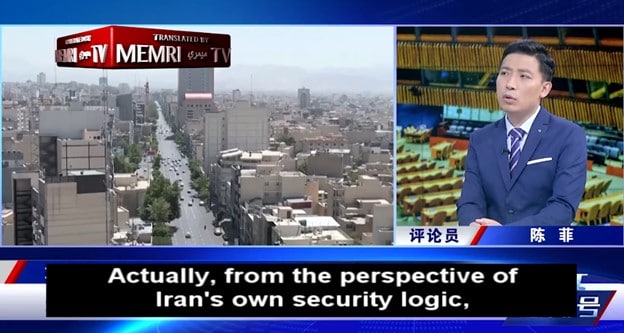
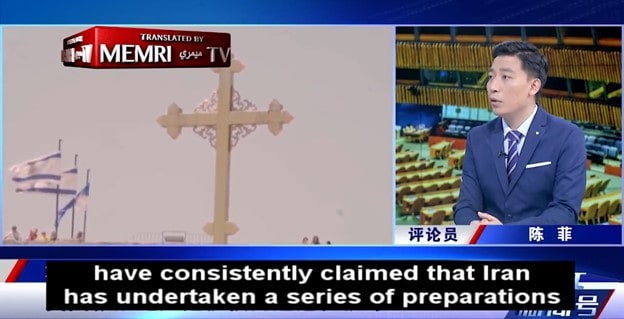
"If the reality of having nuclear weapons were confirmed, the U.S. and Israel would have an excuse to launce military strikes against Iran. Therefore, in this context, Iran does not necessarily need to possess nuclear weapons. But nuclear weapons are a tool for ensuring security. If the U.S. continuously puts pressure on Iran, making Iran feel extremely insecure... This might push them down this path. So, [Iran's] possession of nuclear weapons actually depends on the U.S., not on Iran. The American unilateral withdrawal from the Iran nuclear deal has introduced uncertainty for Iran."
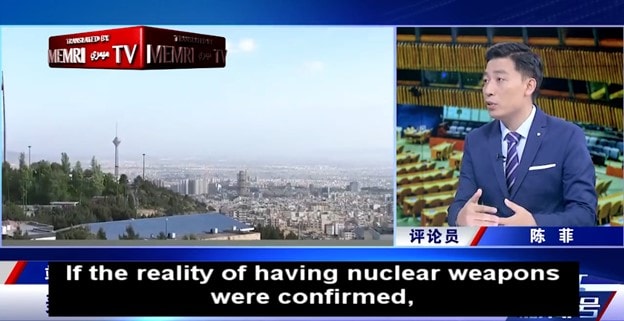
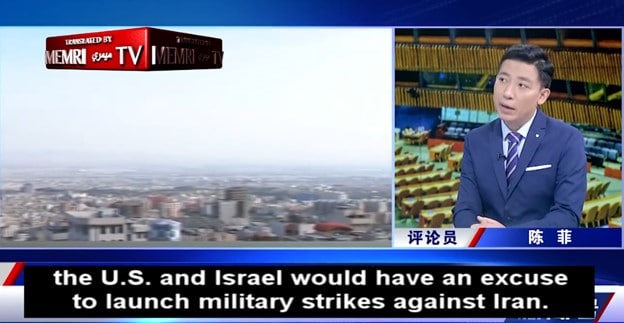
Wang Bin: "From the Trump administration to the Biden administration, the essence of U.S. policy on the Iran nuclear issue has not undergone a fundamental adjustment. Although the Biden administration stated that it wanted to return to the six-party talks, we now see that the Biden administration's willingness to return to the six-party mechanism seems to be diminishing more and more. This situation has heightened Iran's concerns about its security. Moreover, the U.S. has not lifted sanctions on Iran.
"If Iran pursues nuclear weapons, it could significantly alter the Middle East's geopolitical landscape, posing a substantial threat to regional security and peace. We say the Middle East is too far from the U.S., and the U.S. cannot feel the impact at all. So what does such an approach by the United States lead to? It has caused security instability in the Eurasian continent and regions outside the Americas. The U.S. can do a poor job and then simply walk away, leaving behind a mess without caring about the situation. Therefore, the result of many of the United States' actions is indeed not only unhelpful to themselves but also harmful to others."
Chen Fei: "From my personal observation, the UN headquarters is still in New York, but the issues everyone is concerned about can no longer be resolved by the United States for all of humanity. In this process, China has played a more significant role. Many of China's proposals and answers have actually been very constructive. So, some countries joke that New York is no longer suitable as the UN headquarters, and Beijing might be more appropriate.
Wang Bin: "I completely agree with Teacher Chen's perspective, especially when we look at President Xi Jinping's recent speech. Mainstream American media like ABC and CNN have even used sentences from President Xi's speech as their news headlines. They believe that in the issue of climate change, China's influence might exceed that of the United States. Of course, we also need to recognize that in the current process of changes in the international strategic landscape, I personally believe that the hegemonic power of the United States is already in decline.
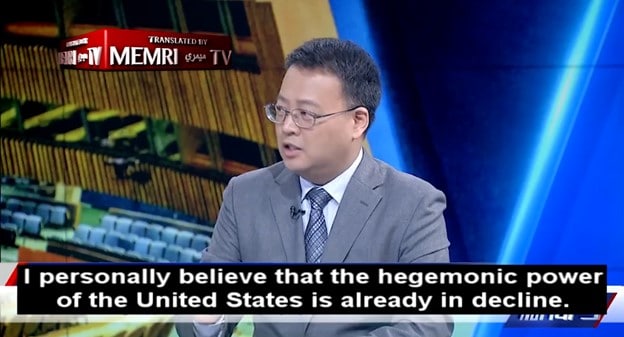
"Although it remains the most powerful country in the world, its hegemonic influence is waning, and the order and structure in many regions are undergoing subtle changes. I believe this is demonstrated in venues like the United Nations General Assembly, where countries make their speeches. As for where the international community will develop in the future, and whether democratization of international relations can be formed, I think this is a very important turning point."













 Michigan chapter.png)